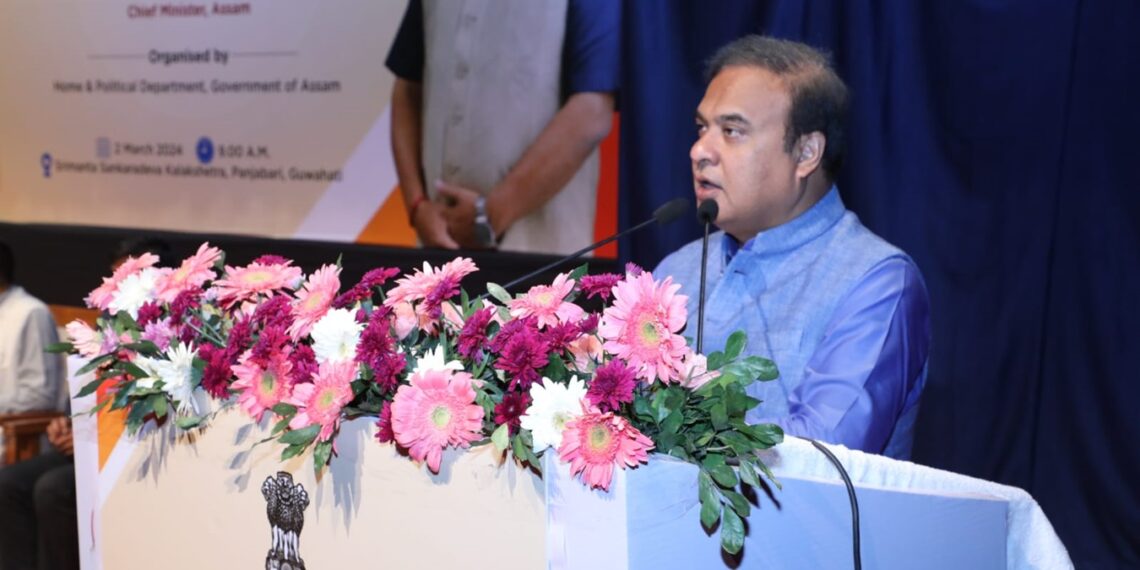GUWAHATI: In a bid to redefine the essence of Assamese identity amidst shifting demographic dynamics, Chief Minister Himanta Biswa Sarma advocated for a broader definition that incorporates communities with deep-rooted ties to the state.
Speaking at a ceremony where rehabilitation grants were disbursed to former United Liberation Front of Assam (ULFA) cadres and their families, Sarma stressed on the need for a collective movement to uphold the quality of Assamese identity in the face of evolving population trends.
Addressing the audience, Sarma underscored the impact of demographic changes, attributing them primarily to infiltration from Bangladesh, which, he claimed, has significantly altered the state’s demographic fabric.
He projected that in the forthcoming census report, Assamese individuals would constitute merely 40% of the state’s population.
Sarma highlighted the importance of inclusivity, advocating for the integration of communities such as the tea tribes and Hindi speakers into the definition of Assamese identity, stressing that their exclusion could diminish the population to as low as 28-30%.
Despite the dwindling percentage of Assamese people, Sarma expressed confidence in their ability to unite and assert their cultural identity.
He called for a mass movement to highlight the quality of Assamese identity, highlighting its resilience and adaptability.
Commending the ULFA leadership and former cadres for their return to mainstream society, Sarma urged those still engaged in armed struggle to follow suit.
He also announced plans to support the families of deceased ULFA members, demonstrating the government’s commitment to reconciliation and peace-building.
Directing his remarks towards Paresh Barua, chief of the ULFA(I) faction resisting peace talks, Sarma invited him to spend time in Assam, believing exposure to the state’s progress would dissuade him from pursuing insurgency.
Sarma also highlighted the transformation Assam has undergone since the 1980s, stressing the importance of prioritizing development while preserving cultural identity.
In his concluding remarks, Sarma stressed on the need for rationality over emotion in steering Assam towards progress, highlighting the imperative of pragmatic decision-making to navigate the state’s developmental trajectory.















